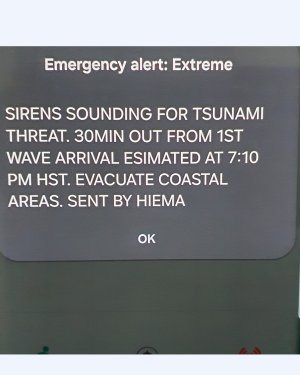- Aug 5, 2000
- 16,004
- 8,597
- 136
We are now in the process of evacuating our shop at Barber's Point. The shit's real, the sirens are blaring and everyone's dropped what they're doing and going home. I'm helping my boss move his boat out of the harbor. Thank goodness my home is well away from the flood zone.




